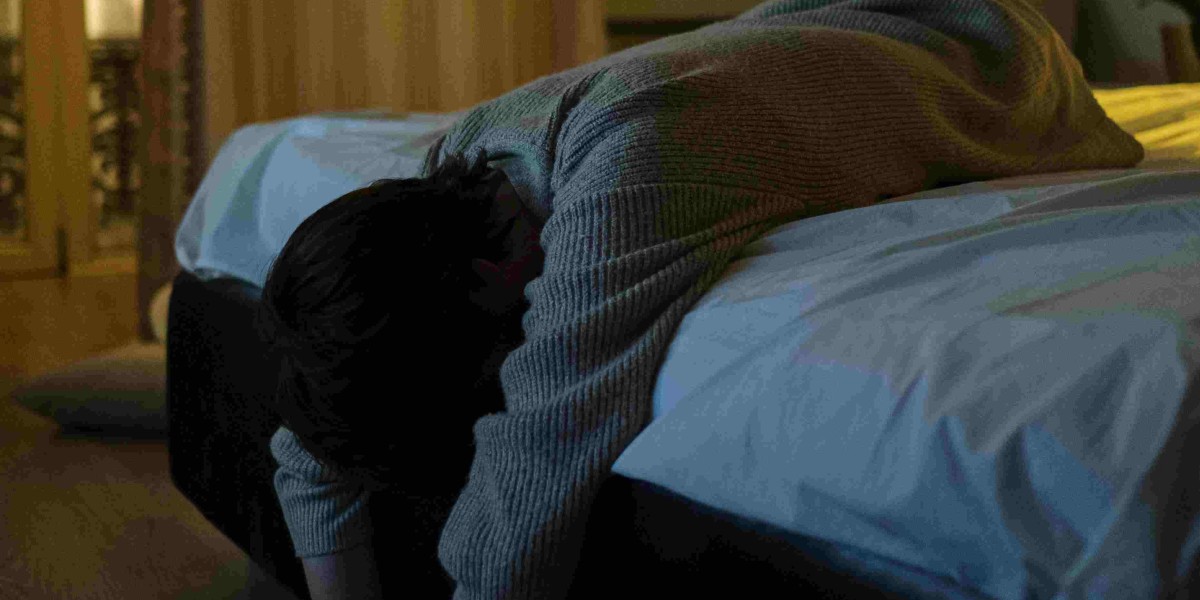Tossing and turning at night isn’t just frustrating — it can seriously affect your health, mood, and quality of life. While occasional sleeplessness is common, when it turns into a persistent problem, it’s often a sign of chronic insomnia.
Chronic insomnia isn’t something you have to endure. An experienced insomnia specialist can help you uncover what’s causing your sleepless nights and create a customized, evidence-based treatment plan to restore your sleep naturally.
What Is Chronic Insomnia?
Chronic insomnia is defined as difficulty falling asleep, staying asleep, or waking too early at least three times a week for three months or longer. Unlike occasional poor sleep, it becomes a recurring issue that impacts daily functioning.
Symptoms include:
Trouble falling asleep at night
Waking up multiple times and struggling to return to sleep
Waking earlier than intended and being unable to doze off again
Daytime fatigue, irritability, or poor focus
Anxiety about bedtime
Chronic insomnia often signals deeper health, lifestyle, or emotional factors that need to be addressed by an insomnia specialist.
Common Causes of Chronic Insomnia
Several issues can contribute to long-term sleep difficulties:
Stress and anxiety
Depression or other mood disorders
Chronic pain or physical health conditions
Irregular work schedules
Excessive screen time before bed
Poor sleep environment
Caffeine, nicotine, or alcohol use in the evening
An insomnia specialist can pinpoint which of these — or which combination — is disrupting your sleep.
Health Risks Associated With Chronic Insomnia
Ignoring persistent insomnia increases the risk of:
Heart disease and high blood pressure
Type 2 diabetes
Depression and anxiety
Weakened immune system
Weight gain and obesity
Memory problems and reduced concentration
Early intervention with a qualified insomnia specialist helps lower these risks and improves your overall health.
How an Insomnia Specialist Diagnoses Chronic Insomnia
Initial Sleep Evaluation
At your first appointment, your specialist will:
Review your sleep history and symptoms
Ask about your bedtime routine and sleep environment
Discuss any medications, supplements, or medical conditions
Identify emotional factors like stress or anxiety
This comprehensive assessment helps shape an accurate diagnosis.
Sleep Diary or Wearable Data
You may be asked to track your sleep patterns for 1–2 weeks through:
A written sleep diary noting bedtimes, wake times, and nighttime awakenings
A wearable device that monitors sleep duration and movements
This data gives your insomnia specialist a clear picture of your sleep habits.
Sleep Studies (If Necessary)
If another sleep disorder like sleep apnea is suspected, you may undergo:
An at-home sleep study
An overnight sleep lab test
Not everyone needs these, but they’re valuable diagnostic tools when required.
Treatment Options for Chronic Insomnia
Most insomnia specialists prioritize natural, behavioral treatments before considering medications.
Cognitive Behavioral Therapy for Insomnia (CBT-I)
The gold standard for treating chronic insomnia, CBT-I involves:
Identifying and changing negative sleep-related thoughts
Adjusting sleep habits and routines
Managing anxiety about bedtime
Techniques like sleep restriction and stimulus control
CBT-I typically leads to lasting improvements in 6–8 weeks.
Sleep Hygiene Improvements
Small changes in your bedtime routine and environment can make a big difference:
Maintain consistent sleep and wake times
Avoid screens an hour before bed
Reduce caffeine, nicotine, and alcohol in the evening
Keep your room cool, dark, and quiet
Use your bed only for sleep and intimacy
Your insomnia specialist will tailor these recommendations to your lifestyle.
Relaxation Techniques
Proven stress-reducing practices include:
Deep breathing exercises
Meditation or mindfulness
Progressive muscle relaxation
Journaling or gratitude lists before bed
These tools ease the mental tension that often fuels insomnia.
Medication (If Needed)
In cases where other treatments haven’t provided relief, short-term medications might be considered. However, they are typically a last resort and closely monitored by your insomnia specialist.
Benefits of Seeing an Insomnia Specialist
An expert’s guidance offers:
An accurate diagnosis of your sleep issues
Access to effective, drug-free treatment options
Personalized advice based on your sleep patterns and health history
Reduced risk of medication dependence
Improved sleep, mood, and daytime functioning
Working with an insomnia specialist gives you the tools and support to regain natural, refreshing sleep.
FAQs
What’s the difference between acute and chronic insomnia?
Acute insomnia lasts a few days to a couple of weeks, often triggered by stress or illness. Chronic insomnia persists at least three times a week for three months or more.
Is CBT-I better than sleeping pills?
Yes — CBT-I has longer-lasting effects, no dependency risks, and addresses the root cause of insomnia, unlike medications that only mask symptoms.
Will I need a sleep study?
Not always. Your insomnia specialist might recommend one if another sleep disorder is suspected.
How long does treatment take?
Most people notice noticeable improvements within 6–8 weeks of consistent behavioral therapy and lifestyle adjustments.
Can lifestyle changes alone fix chronic insomnia?
In some cases, yes — but for many people, combining lifestyle improvements with CBT-I and stress management offers the best, lasting results.
Conclusion
Chronic insomnia isn’t just about restless nights — it’s a serious health issue with lasting effects if left untreated. Thankfully, professional help is available. An experienced insomnia specialist can uncover the underlying reasons behind your sleeplessness and design a personalized plan to help you sleep better, feel better, and function at your best.








